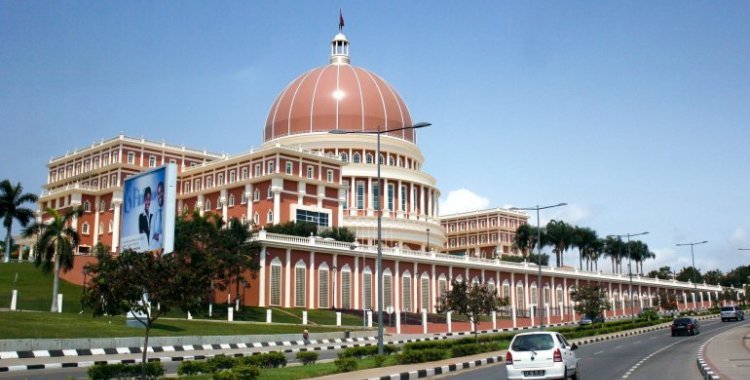The draft resolutions on the appreciation of the report on the execution of the General State Budget (OGE), referring to the third and fourth quarters of 2021, were approved with 116 votes in favor of the Popular Movement for the Liberation of Angola (MPLA), the majority party, and votes against and abstentions by the National Union for the Total Independence of Angola (UNITA), Broad Convergence for the Salvation of Angola–Electoral Coalition (CASA-CE), the Social Renewal Party (PRS) and the National Front for the Liberation of Angola ( FNLA).
In the presentation of the execution report, the Secretary of State for Budget and Public Investment, Aia-Eza da Silva, said that in the third quarter the price of a barrel of oil was 72.4 dollars, with an oil production record of approximately 1.1 million barrels per day and an inflation rate of approximately 19 percent, with revenue amounting to 3.8 billion kwanzas and expenses amounting to 2.9 billion kwanzas.
According to Aia-Eza da Silva, in relation to the execution of the budget, it represented 26 percent of the total budgeted and a growth of 36 percent, compared to the same period of 2020, and 18 percent in relation to the revenue of the second quarter of the year in analysis, representing "a decrement".
Aia-Eza da Silva also said that third-quarter expenses accounted for 20 percent of the total budgeted execution, 5 percent less compared to the third quarter of 2020 and 8 percent less compared to the second quarter of 2021.
In terms of sectoral expenditure, the official continued, the sector with the highest expenditure, with approximately 38 percent of the expenditure executed, was the social sector, followed by defense and security.
"In the social sector, the largest share went to the health sector, especially the investment category", she informed.
With regard to debt, the Secretary of State said that domestic debt issues amounted to 381 billion kwanzas while the service amounted to 944 billion kwanzas.
"In terms of external debt, issues amounted to 227 million kwanzas, while the service amounted to 375 billion kwanzas", she said.
Regarding the fourth quarter, Aia-Eza da Silva informed that the price of a barrel of oil was US$79.88 per barrel, with oil production "that did not change much from one quarter to the other", of 1.1 million barrels per day and inflation that was above the previous quarter, at 27 percent.
In terms of revenue, total revenue amounted to 4.2 billion kwanzas, representing an execution of 29 percent of the budget and an execution in relation to the same period of 2020, a growth of 32 percent, as well as a 9 percent growth compared to the third quarter of 2021.
Expenditure amounted to approximately four billion kwanzas, representing 27 percent of budgeted expenditure.
"In relation to the fourth quarter of 2020, we spent less this quarter, 12 percent, and compared to the previous quarter of 2021, the fourth quarter recorded an increase in expenses of 40 percent," said Aia-Eza da Silva, adding that the largest expenditure continued to be made in the social sector, with 54 percent of budgeted expenditure, followed by the economic sector, with 36 percent.
In the answers to the deputies' doubts, namely the delay in submitting these reports to the National Assembly, the official said that the reports have been delivered closer and closer to the deadlines.
"Note that the report for the fourth quarter of last year was due to be delivered to the National Assembly by March of this year and we are analyzing it in May and this, in a way, is unprecedented in this House. And we are analyzing it in May, it is not because he entered the National Assembly in May", she stressed.
The Secretary of State also admitted that there are many works stopped, but through the Integrated Plan for Intervention in Municipalities (PIIM), some surplus resources from the price of oil are being channeled to their recovery and completion.
"All the provinces are instructed in this way and we have been doing it gradually. This year we will conclude some, probably in 2023 we will resume others and conclude them and so on. them before thinking about new works", she said.
Aia-Eza da Silva considered that "it is also undeniable, the investment that has been made in health and education", not forgetting the road works, also the result of some treasury surplus due to funds in excess of the price of oil.
UNITA said that it voted against, because the draft resolution presents "uncertain data" and "far below the desirable".
According to UNITA deputy Mihaela Weba, despite the fact that 17 percent of revenues were invested in the social sector, "Angolan families are much poorer and the basic problems of access to drinking water, energy, basic sanitation, medical and drug assistance are of quality, were insufficient and/or non-existent".







